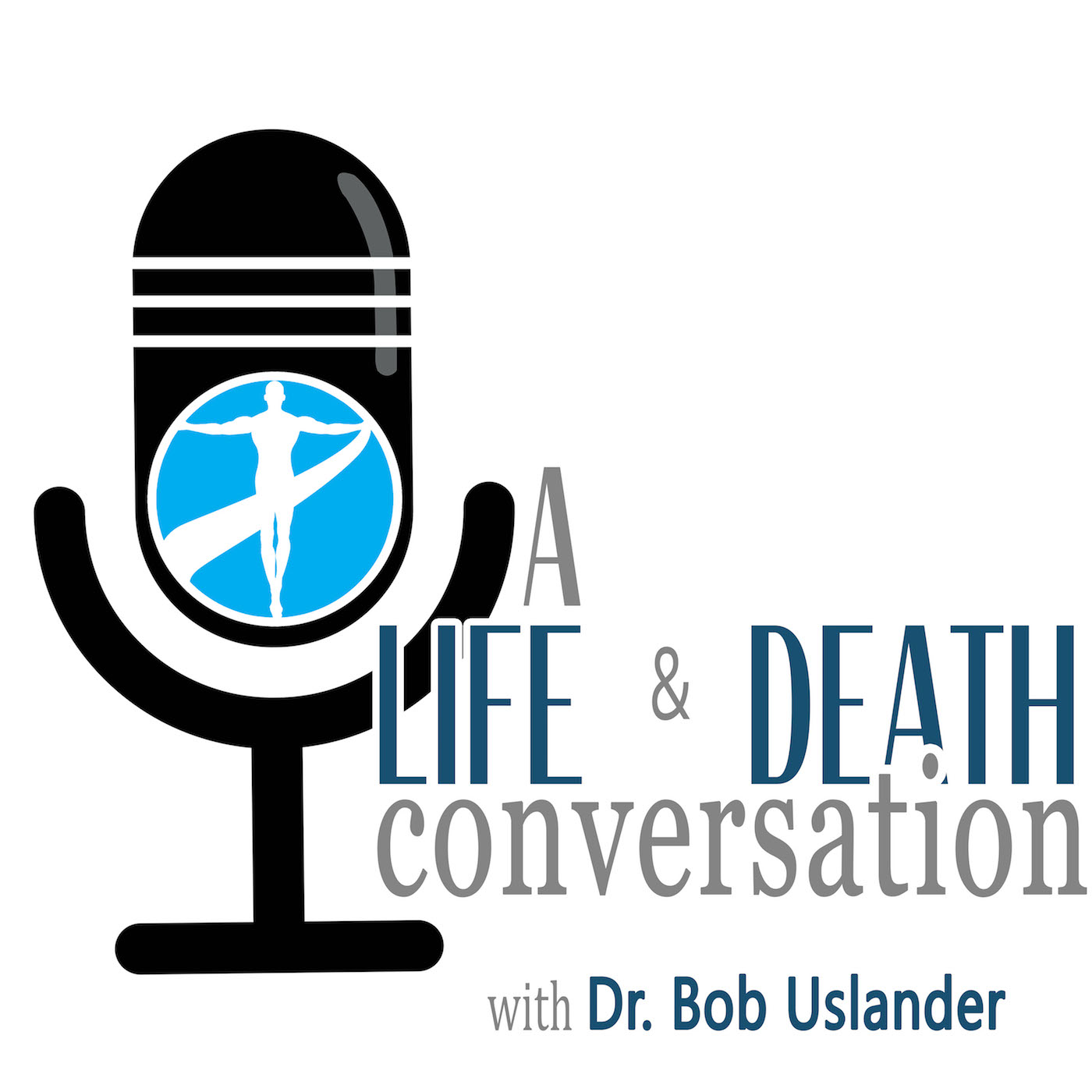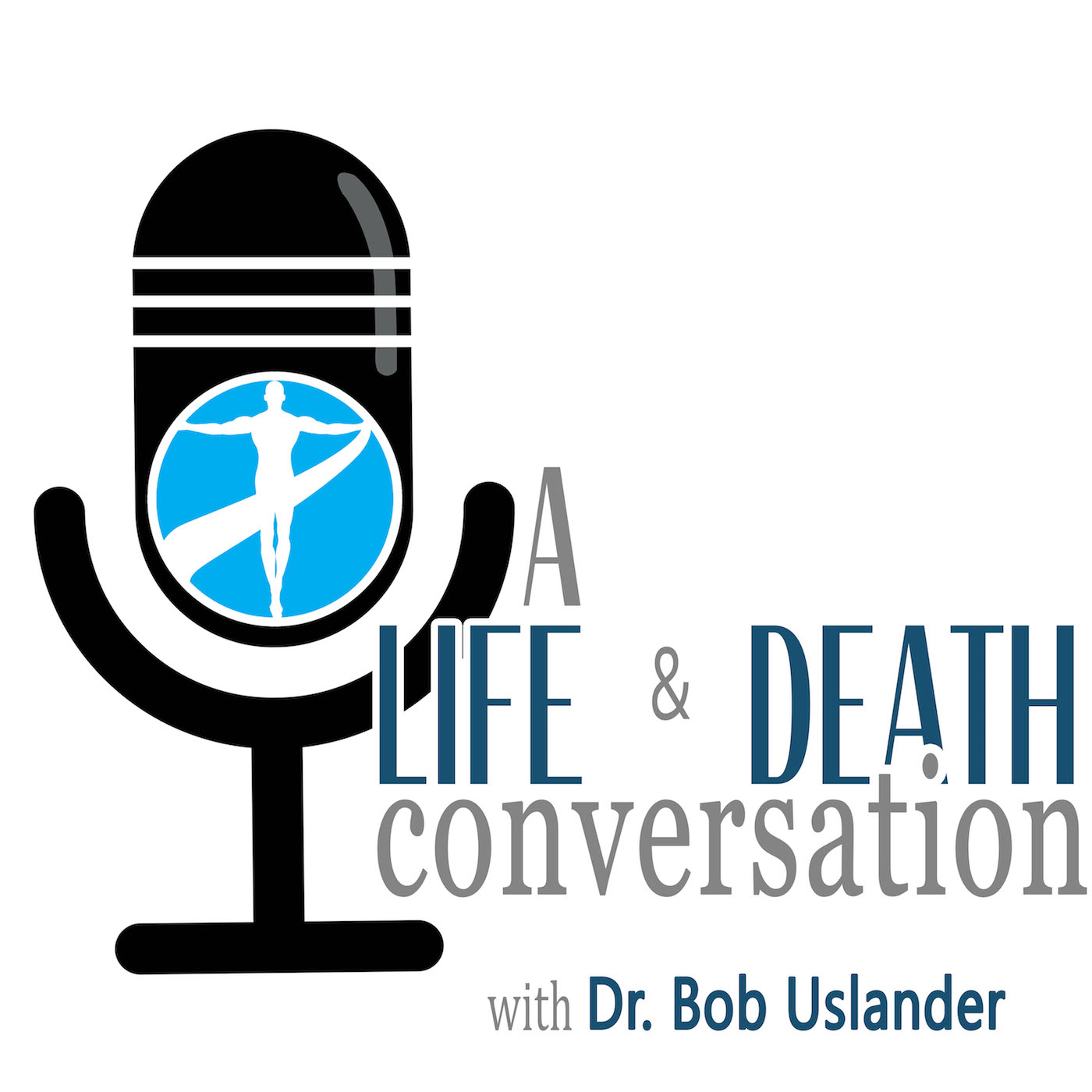Euthanasia in the Netherlands is Helping People Who Want to Die, Dr. Rob Jonquière Ep. 13
Update: 2018-09-20
Description
Dr. Rob Jonquière is the Executive Director of the International Federation for Right to Die Societies. He shares how euthanasia is helping people who want to die in the Netherlands. Now, assisted suicide is also legal. Hear how this is impacting the country. Contact World Federation of Right To Die Societies website San Diego Hemlock Society website Note: A Life and Death Conversation is produced for the ear. The optimal experience will come from listening to it. We provide the transcript as a way to easily navigate to a particular section and for those who would like to follow along using the text. We strongly encourage you to listen to the audio which allows you to hear the full emotional impact of the show. A combination of speech recognition software and human transcribers generates transcripts which may contain errors. The corresponding audio should be checked before quoting in print. Transcript Dr. Bob: Welcome to another episode of Life and Death Conversation. I'm Dr. Bob Uslander, and I'm here today with a guest who I'm anxious to hear from. He's got a rich experience in caring for people at the end of life, and he's really on the forefront of the movement to assist people in having a more peaceful and dignified end of life worldwide. So, welcome Dr. Rob. Jonquière. Thank you for joining me today. Dr. Rob Jonquière: Good evening, yes. Dr. Bob: Yes. It is evening. For me, it's morning, for you it's evening. Dr. Rob Jonquiere: Sorry. Dr. Bob: Can you tell us where you're calling, where we're talking from? DrRob Jonquière: Amsterdam, in the Netherlands. It's evening here at this moment. Dr. Bob: Very nice, and you were just mentioning to me that you're in the midst of winter, but you're having some- Dr. Rob Jonquière: It's not a real winter, unfortunately. It's too hot. They are expecting a little bit colder next week, of course, in my youth, I used to go skating outside, and it is a long time since we have been able to do that, so probably the climate change, I'm afraid. Dr. Bob: Well, as you know, I'm in sunny San Diego right now, having grown up in the Midwest in Chicago, I had my fair share of snowy, cold winters, so I'm feeling fairly blessed knowing what's happening in the Midwest and the East Coast right now. Well, again, thanks for taking time. We met not long ago, a month or two ago, when you were here in San Diego at a conference, and I got to a chance to hear a bit about your background and what you're involved with, and I think we are kind of birds of a feather. We seem to share a belief system and philosophy about how people should be cared for and supported at the end of life. You live in a very progressive country, with respect to this, and you've been a pioneer for many years, so I'd love for you to share a bit about what you're doing and kind of give us a sense of how you came to be in this position. What was the path that brought you here? Dr. Rob Jonquière: Yeah. Well, actually, at this moment, I'm involved in the international movement as it is called, the Federation for Right to Die Societies, which is an international federation of 52 societies, like the Hemlock Society of San Diego is one of the members, and I am the executive director of that federation, which implies actually looking after the website of the federation and assisting the committee or the board of the Board of Directors of the federation, and I came there after I was retired. I had been retired from my work at the Dutch Right to Die Society, NVVE as the name is, and in my retirement, I'm not used to sitting still, doing nothing, and I'm very interested in the whole movement, not only in the Netherlands but also worldwide. When I was working at the NVVE, I was started work there about five days after the health minister brought her bill, an euthanasia bill in the Parliament, so I have been involved in all the debates actually right from the beginning in the parliamentary debates, and as Chief Executive Officer of the NVVE, I've been for eight, nine years involved in the practical situation after the bill was approved in the Parliament, and now we have our official euthanasia law since 2002, and having a law is not the end of ... Well, it is the end of a process, but it's the beginning of a new process, to get people to accustomed to the fact that we have a law where it is legal for a doctor to assist in euthanasia, and aid in dying as it is called today, and we have to see the patients get what they want and that the law is used as it should be. And, of course, it's interesting how I became to be the executive officer because my original profession is a family medicine, so I have been working as a family doctor in the eastern part of the country, and I know from the beginning, I always have been very interested in ... Well, let's say, not the patient with colds, or a little complaints or things like that, but especially the situations in which patients needed guidance, whatever they need guidance in, so I have been delivering babies on the one side of the life, and I also became involved in the end of life guidance, where automatically, in that period, first careful questions came from patients especially patients working in the healthcare field, about my position regarding euthanasia as it was known, but as it was illegal at that moment. And, of course, I had never got training on what euthanasia was, how you do it, or what kind of medication you use, so it's using your experience and trying to sort of help people die in a peaceful and dignified way, and of course having been given this kind of help, I have never reported it, because if I had reported it, I would have been persecuted and probably get before the courts, and I didn't want to do that- Dr. Bob: Of course not. Dr. Rob Jonquière: No, and my patients didn't want to have me in front of courts. They asked me to help. They said not if you're getting trouble, and of course, in the situations I'm talking about, it has been patients with terminal cancer situations, who actually were really at the end of their lives, suffering from their cancer situations, although we have been treating with all kinds of care and medication and help we could. Dr. Bob: So, I want to touch on that, I want to clarify a bit for anybody who would like that, this was occurring when you were a practicing family doctor. Dr. Rob Jonquière: Yes, the '70s, '80s. Dr. Bob: Okay, and you were doing the whole full spectrum of caring for people from birth to death, and you recognized that there were people who were suffering, and you obviously philosophically felt comfortable with providing that support, even though it was not legal. So, first of all, the statute of limitations, I'm assuming the statute of limitations, for that type of activity, is past so that you can speak freely about it- Dr. Rob Jonquière: Yes. Dr. Bob: About your experiences back then. Dr. Rob Jonquière: Well, I can, and I mean, even you can say that is kind of a Dutch culture. I mean, at that moment, I could not go to the authorities and say, listen, I've terminated a life of a patient because she was suffering terribly, so I just said, in my records, that she died because of her cancer, which was actually the case. I only speed up the dying process a little bit. Dr. Bob: Which is the same as the aid of dying laws here in the United States, where the patients are dying. Anyone who is eligible for physician aid in dying is dying. Dr. Rob Jonquière: Certainly. That is now, and of course, in the Netherlands, it is now absolutely normal practice in terminal cancer situations. People are in such a situation, and don't want to go to the real end of the suffering can ask for it, and will get euthanasia without any problem. Dr. Bob: Okay, so let's go back. So you ended your clinical practice. What drove you at that point to stop practicing in the way that you were in that practice? Dr. Rob Jonquière: Well, you know, the main reason is I have always been interested to not only do my work as a family doctor, but I always liked to work in organization, to support, to develop things, to do on education, or research, or whatever, so I did many things besides my practice, and actually that became a little bit too much for a work situation, and then I got the opportunity to become the head of the vocational training program for family doctors, which actually meant that I could go to work on a university. I had the opportunity to be involved in research, in education, in organization, and it was still inside the field of the job and the kind of work I liked, which is family medicine. So, not specifically my work in the field of end of life, just a change of work from being a, let's say a medical practitioner into a person on university working on a higher level. Dr. Bob: Got it, and through that period, were you still working in the end of life arena, helping patients at end of life? Dr. Rob Jonquière: Not intentionally. Not as a kind of idea. There were other things that I was focusing on. You can say that I developed, in that period, the vocational training scheme for nursing home physicians, which is a little bit that way, and whenever in the curriculum of the vocational training, the topic was end of life or palliative care, although they didn't give it that name at that moment, but end of life care, guiding dying people, yes, of course, I was interested in that because it touched a part of my practical work. Dr. Bob: Wonderful. And, then additional sort of responsibilities and opportunities, and then eventually found yourself really diving fully into the Right to Die organization, is that right? Dr. Rob Jonquière: That was also, actually, accidentally. I was looking for ... I don't know whether you know the issue of middle managem
Comments
In Channel







